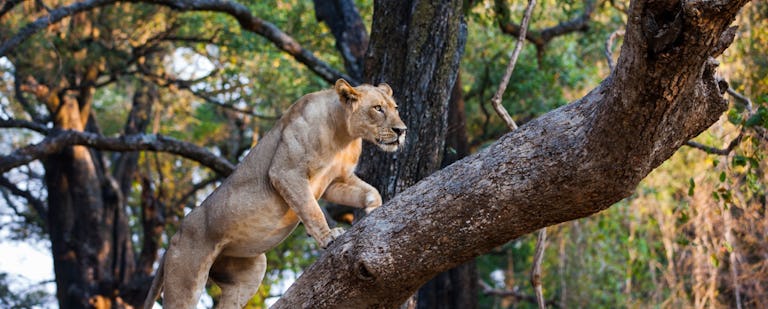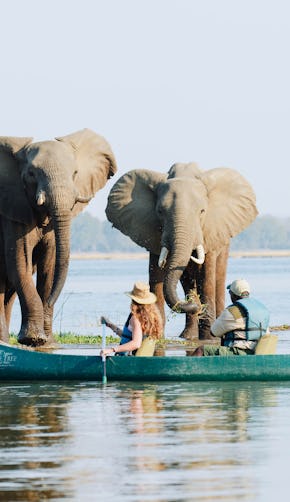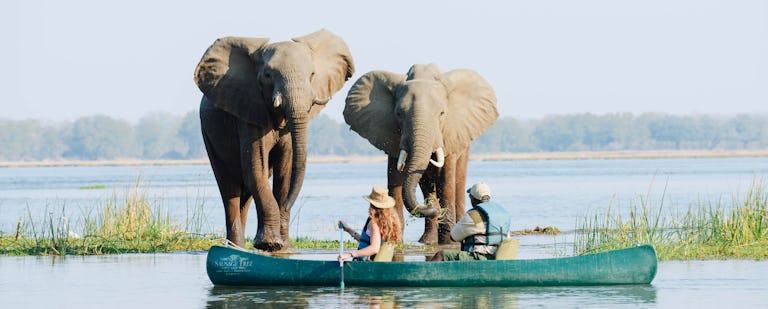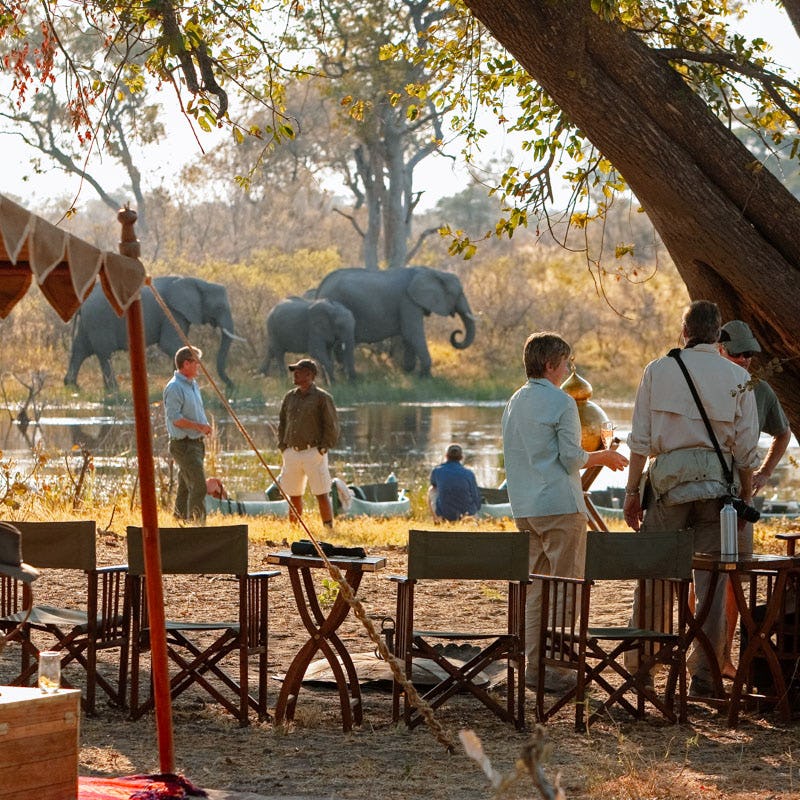The way we explore the world has evolved significantly in the last decade. Long gone are the days when a trip was simply about flopping down on a beach and soaking up luxuries abroad without thinking about the impact – not only on the environment but also on the local communities and cultural practices. As travellers’ mindsets have shifted, so have their priorities. This is not to say that you have to turn yourself into a radical eco-warrior however – conscious travel simply means being mindful of the world we explore, while still being able to revel in the excitement and pure joy of the experience. With that in mind (and seeing that our focus lies squarely on the African continent!) – what can you do to become a more conscious African traveller? Here are a few suggestions for your next trip.

1. Pick uncrowded destinations that value sustainability
Choosing to travel to a destination that places great emphasis on conservation and cultural heritage is in fact one of the most important tweaks travellers can make – so it pays to do your research. Also try to avoid places already drowning in tourism, and think about picking lesser-known – albeit no less intriguing – alternatives instead. The good news is that our beautiful continent offers plenty of unspoiled destinations worthy of your attention. So if, say, you were thinking of travelling to the busy beaches of Thailand, why not head to Mozambique or Madagascar instead? Or how about a mountain gorilla encounter in the Democratic Republic of Congo rather than mingling with masses of tourists in Venice or Barcelona? Following a turbulent history, Africa’s second-largest country is currently experiencing a major renaissance, with tourism providing much-needed funds and injecting a new lease of life.

2. Consider how to get there
We all know that air travel is bad news for our carbon footprint – yet a plane is often the only realistic way to get from A to B, especially when travelling to a far-flung destination. One way to alleviate the problem is to choose airlines offering carbon offset programmes, such as Emirates, British Airways and Virgin Atlantic, who calculate passengers’ emissions, then purchase carbon credits to finance renewable energy, forestry and conservation projects. Once you are on the continent it is also worth considering train travel – from the opulent Rovos Rail, to the Blue Train, Shongololo Express and Nairobi to Mombasa rail journey, there are plenty of wonderfully old school options. Not only will your leisurely journey generate up to 10 times fewer carbon emissions, you’ll also get a more profound sense of place.

3. Choose “green” accommodation
Today’s eco-conscious hotels offer far more than the option not to have your towels changed every day – to stand out, they have to combine innovative sustainability concepts with a contemporary approach to design and luxury. African lodges are known for setting precedents as far as ecologically sound accommodation is concerned – they are built with as light a footprint on the environment as possible, and use locally sourced materials and interior design where they can. Take Grootbos in Hermanus for example – world-renowned as a botanical wonderland, the lodge’s various ecological and social development projects set a great example. Or the 100% solar powered Mombo Camp in the Okavango Delta, which features nine tented suites elevated above ground to reduce the lodge’s carbon footprint. If you need any more inspiration, take a look at our Top 10 eco-friendly safari lodges article.

4. Go local
According to statistics provided by the United Nations Environmental Programme (UNEP), for every $100 spent by the average developed-world traveller, only $5 remains in the destination’s economy. Luckily, travellers have the power to change this somewhat sobering statistic. Check with your hotel, tour operator and savvy locals before parting with your hard-earned cash, to make sure that your money really benefits the local community. This means eating regional food, in restaurants that employ people in the area and use local ingredients; visiting nearby markets and buying locally. Lovingly handcrafted gifts by regional artisans will no doubt cost you more than mass-market souvenirs from a cheap shop at the mall – but every time you look at it back home you’ll be reminded that you helped preserve your destination’s cultural heritage and economy.

5. Say no to plastic and yes to saving water
As we all know, the world is drowning in plastic, which wreaks havoc on marine ecosystems – and single-use plastic bottles are the biggest culprit. Bringing reusable water bottles when you travel and refusing plastic shopping bags and straws in shops and restaurants are easy steps to take in reducing waste. Then there’s the matter of water – an essential most of us take for granted, even though an estimated two billion people around the world are without clean running water. And as the recent drought in Cape Town showed, even global cities are at risk of running out of this precious commodity. Smart Cape Town hotels such as Radisson RED reacted by introducing water saving initiatives, and encouraging guests to be H2o conscious – simple things, such as turning the tap off while brushing their teeth, and choosing short showers over baths.

6. Give back
It is tempting to hand out sweets, gifts and even money to local kids and villagers in developing countries. Your heart is definitely in the right place, however your good intentions can have unintended consequences – leading to community conflict and breeding begging and dependency. There are other ways to give back in a meaningful way however – “Pack for a Purpose” for example lists destination-specific supplies that are sure to reach their intended target audience, while luxury safari lodge providers such as Singita make it their mission to help local communities thrive economically and socially – through child education, the development of small enterprises, and an improved awareness of conservation and sustainable daily living practices.

7. Take only photos, leave only footprints
The World Travel & Tourism Council (WTTC) recently launched an “Is it too much to ask” campaign to raise awareness amongst travellers regarding cultural practices and important dos and don’ts. The aim is to ideally leave a place better than you found it – there are the obvious points, such as being respectful of cultural and religious customs, and choosing ethical, sustainable experiences and outings. Other things, such as wearing reef-safe sunscreen to avoid coral bleaching, may not necessarily have been the first thought to pop into your head. Prioritising animal welfare is another must – steering clear of activities that involve animals in captivity, not interfering with their natural habitat, and saying no to any kind of wildlife souvenirs. Many African lodges also have ambitious wildlife initiatives – with profits from guest stays often flowing straight back into these programmes.























